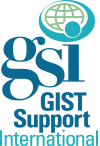MIT/Harvard scientists find most cancers have a greater dependency on changes in genes’ expression (80%) rather than on mutations (16%).
“Using a set of molecular features (e.g., mutations, gene copy numbers, expression patterns) from each cell line, the team also generated biomarker-based models that helped explain the biology behind 426 of the 769 dependencies. Most of those biomarkers fell into four broad categories:
Mutation(s) of a gene;
Loss of a copy or reduced expression of a gene;
Increased expression of a gene;
Reliance on a gene functionally or structurally related to another, lost gene (a.k.a., a paralog dependence).
Surprisingly, more than 80 percent of the dependencies with biomarkers were associated with changes (up or down) in a gene’s expression. Mutations, often used as the grounds for pursuing a gene as a drug target, accounted for merely 16 percent of biomarker-associated dependencies.”
“According to Hahn, the data argue that the time is ripe to pay more attention to the broader landscape of functional aspects of cancer, in addition to focusing on protein-coding gene mutations and variations.”

